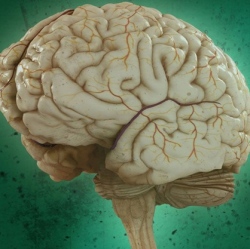
Having a stroke ages a person’s brain function by almost eight years, robbing them of memory and thinking speed as measured on cognitive tests. In patients, having had a stroke meant that their score on a 27-item test of memory and thinking speed had dropped as much as it would have if they had aged 7.9 years overnight.
For the study, data from more than 4,900 black and white seniors over the age of 65 was analyzed by a team from the University of Michigan U-M Medical School and School of Public Health and the VA Center for Clinical Management Research. The results will be published in the July issue of Stroke.
Researchers married two sources of information for their analysis: detailed surveys and tests of memory and thinking speed over multiple years from participants in a large, national study of older Americans, and Medicare data from the same individuals.
They zeroed in on the 7.5 percent of black study participants, and the 6.7 percent of white participants, who had no recent history of stroke, dementia or other cognitive issues, but who suffered a documented stroke within 12 years of their first survey and cognitive test in 1998.
By measuring participants’ changes in cognitive test scores over time from 1998 to 2012, the researchers could see that both blacks and whites did significantly worse on the test after their stroke than they had before.
Although the size of the effect was the same among blacks and whites, past research has shown that the rates of cognitive problems in older blacks are generally twice that of non-Hispanic whites.
So the new results mean that stroke doesn’t account for the mysterious differences in memory and cognition that grow along racial lines as people age.
